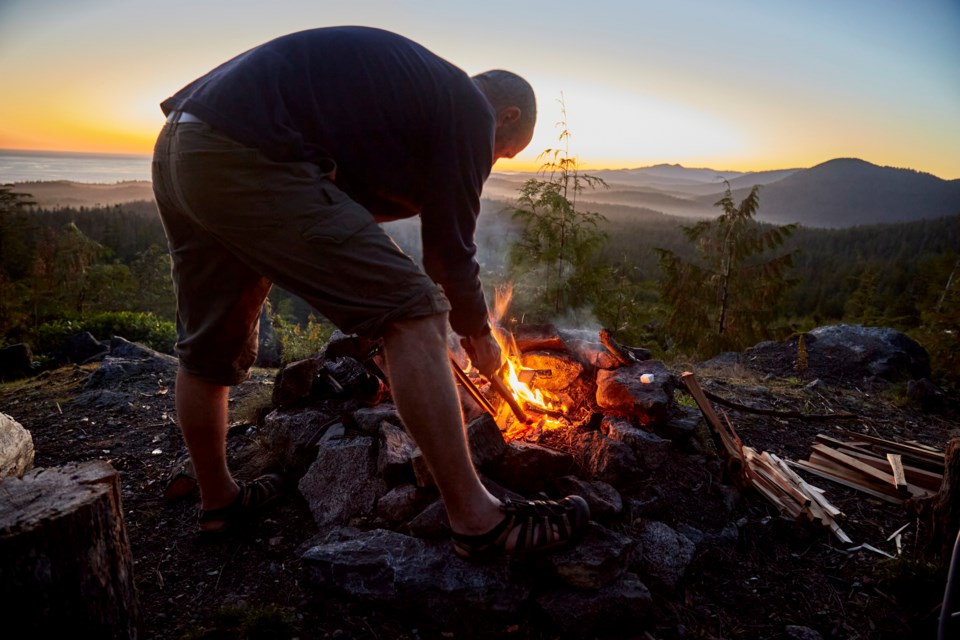A campfire ban is being imposed today across British Columbia, as the province sounds the alarm over worsening wildfire and drought conditions.
In the wake of several dozen new wildfires sparked by lightning over the weekend, a ban on campfires takes effect at 3 p.m. Monday in all regions, except Haida Gwaii.
They were already banned in the Kamloops Fire Centre on Friday.
“Things have certainly escalated very drastically in a large part of the province over the weekend,” said Bowinn Ma, Minister of Emergency Management and Climate Readiness during a news conference from Vancouver.
“It is the drought situation, in addition to the wildfires situation, that is really causing concern and causing us to pay very, very close attention and assess the situation across the province.”
She adds that this is the worst drought situation this early in the year in recent memory. Seventeen of the 34 water basins in the province are already at Level 4 drought conditions. Level 5 is the highest.
A more detailed briefing on the drought conditions ahead is anticipated later this week.
The BC Wildfire Service (BCWS) is reaching out for more help from across Canada and around the world, comparing this season so far to the worst on record in 2017. In that year there were 190 new fire starts from July 6-8. From July 7-9 this year there were 244 confirmed fire starts.
“We are requesting resourcing, which we have been for the better part of the last six weeks as well, in anticipation of this event,” said Cliff Chapman, director of provincial operations for BCWS.
“We knew the potential for lighting this weekend. We knew that it was coming. We prepared as best we could accordingly across the province. We move resources around, we secured extra aircraft.
"So, we knew this event was coming and obviously the impacts of it are being felt really across the province,” he pointed out.
Chapman says BCWS personnel have been on the fire line since the middle of April, and fatigue is a concern. Crews from Mexico and the United States are helping out in the Prince George Fire Centre, and a request for more assistance has been made to the Canada Interagency Forest Fire Centre.
He says the provincial campfire ban is important because even one avoidable fire could stretch resources to the limit. “We will send a response. It’s really once the fires, if they escape our initial response, when we start to see that critical resource shortage.”
All British Columbians are being urged to have an emergency plan, to pack a grab-and-go bag, to FireSmart their homes, and to conserve water as much as possible.
“The climate crisis is here. And in a lot of ways what we are dealing with today and going on into the future will be on the leading edge of unprecedented situations that we will have to face,” said Ma.





